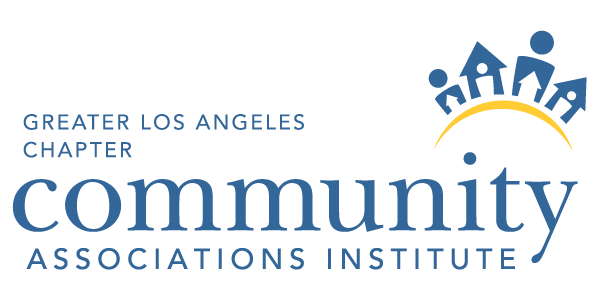Mediation Services
CAI-GLAC Mediation Services provide a low-cost method for participants to resolve disputes in a non-hostile environment and find common ground between managers, boards, and homeowners.
If you have a dispute involving a contract, invoicing, warranties, personnel matters, construction, insurance, money owed, or anything else involving common interest developments, CAI-GLAC Mediation Services may be able to resolve the issue before it becomes a bigger problem.
Program Details

Pricing
The cost for mediation for CAI members is $1895 for three (3) hours. Each party pays half. At least one party in the dispute (the HOA Board or the homeowner, not their manager or lawyer representatives) must be a member of any chapter of CAI.
The cost for non-members is $2495 for three (3) hours. Although most mediations can be resolved in that time, if the parties wish to continue beyond three (3) hours, the rate will be determined by the mediator and will be fully disclosed to the parties prior to the commencement of the mediation session.
Mediators
The mediators in our program are professional and impartial and have extensive experience resolving disputes in common interest developments.
Wendy Fassberg, Esq., Fassberg Mediation Services - View Profile (pdf)
Matthew Grode, Esq., Gibbs Giden Locher Turner Senet & Wittbrodt, LLP
Gideon Krakov, Esq., ADR Services, Inc. - View Profile (pdf)
Request Mediation
To request mediation, email memberservices@cai-glac.org with contact information for both parties and a summary of the dispute. Both parties must agree to mediation.
Confidentiality
What is said in mediation stays in mediation. All participants will be asked to sign a confidentiality agreement.All communication, written documents, agreements, professional consultations, and work analyses are of a confidential nature between the parties and the mediator. The parties will abide by California Evidence Code Sections 1115-1128. Of note, Section 1119 specifies:
- No evidence of anything said or any admission made for the purpose of, in the course of, or pursuant to, a mediation or a mediation consultation is admissible or subject to discovery, and disclosure of the evidenceshall not be compelled, in any arbitration, administrative adjudication, civil action,or other non-criminal proceedings in which,pursuant to law, testimony can be compelled to be given.
- No writing that is prepared for the purpose of, in the course of, or pursuant to, a mediation or a mediation consultation, is admissible, or subject to discovery, and disclosure of the writing shall not be compelled in any arbitration, administrative adjudication, civil action, or other non-criminal proceeding in which, pursuant to law, testimony can be compelled to be given.
- All communications, negotiations, or settlement discussions by and between participants in the course of mediation or a mediation consultant shall remain confidential.
What is mediation?
Mediation is a process of dispute resolution, facilitated by a mediator, designed to help parties resolve their dispute without
going to court. A mediator is a trained facilitator and is neutral and independent of the parties and their dispute. They hear both sides of a problem and help the parties achieve a satisfactory resolution of their dispute. Mediators provide a confidential forum, encourage discussion, and are not limited by rules of evidence and procedure governing court and arbitration proceedings. No decisions are imposed by mediators. Mediators help people make their own decisions about what solutions will work best for them.
What are the advantages of mediation?
Mediation saves time and money, and minimizes hostilities while maximizing goodwill and cooperation between parties. The mediation process provides a positive environment, a pro-active problem-solving approach, and a confidential forum for discussions.
What is the difference between litigation, arbitration, and mediation?
In litigation and arbitration, someone makes a decision for the disputing parties. In mediation, the disputing parties mutually consent to their own agreement. In litigation and arbitration, the disputing parties are typically represented by an advocate. In mediation, the disputing parties typically represent themselves. However, they may be assisted by legal counsel, experts, and consultants. Mediation is not a settlement conference. The goal of mediation is to find a mutual resolution to the disputed matter with all parties.
What is the mediation process?
Mediation Summary: Prior to the mediation, each participant will be contacted by a mediator to obtain information outlining the nature of the dispute.
Parties Statements & Witnesses: Mediation is a structured but not highly formal process, and each party will be encouraged to speak openly regarding the issues. At the beginning, each party will be given an opportunity to make an opening statement. The mediator will ask questions and begin the process of finding a resolution.Participants may invite witnesses, experts, legal counsel, and other pertinent parties or individuals, but it is not necessary to do so. Participants should notify the mediator of all individuals planning to attend the mediation session.
Finding Agreement: The mediator is not empowered to make a decision in the case or impose a resolution. The mediator will attempt to find common ground and help the parties develop options for resolution. However, it will be up to the participants to select the solution that will work best for them. For this reason, the mediation should include principals representing each party who have the decision making authority to resolve the dispute. If the parties reach a consensus, the mediator will assist the parties in writing out their agreement. A written agreement signed by the parties at the conclusion of the mediation may prevent future conflict or confusion.
Request Mediation
To request mediation, email memberservices@cai-glac.org with contact information for both parties and a summary of the dispute. Both parties must agree to mediation.
